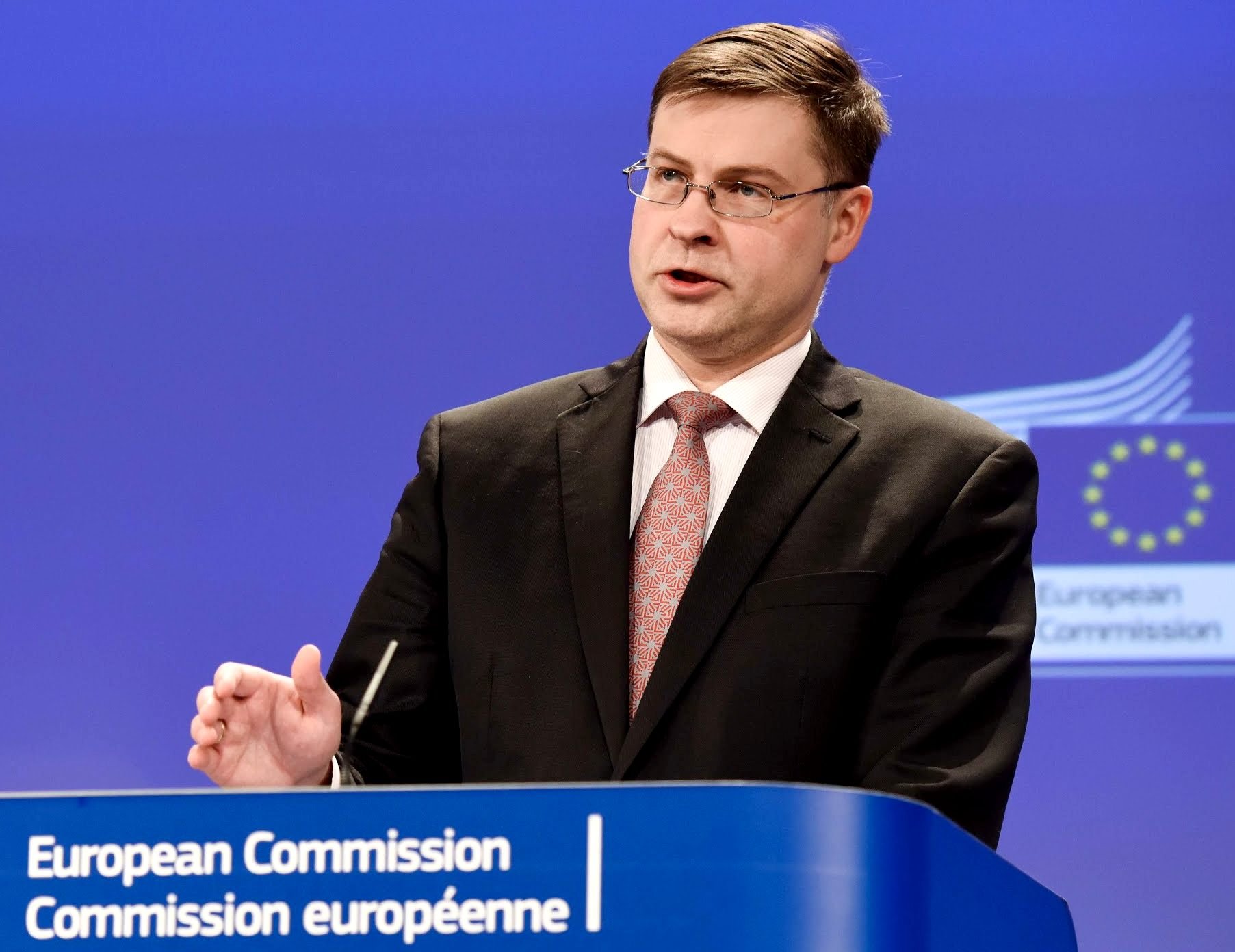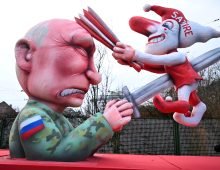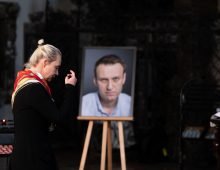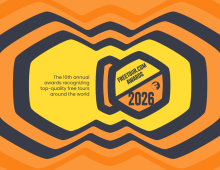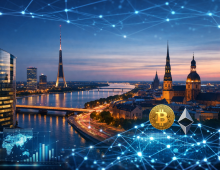From the economic point of view, Latvia has benefited from the opportunities offered by the European Union (EU) over the years, and despite the crises, we have come much closer to the average EU standard, the European Commission’s (EC) Executive Vice President Valdis Dombrovskis (New Unity) said during a discussion at the international conference “EU negotiations 2024: EU as a Safe Home in Today’s Geopolitical Landscape” on Monday.
The EU commissioner noted that when Latvia joined the EU, its gross domestic product (GDP) was 43 percent of the EU average, while today it is 74 percent of the bloc’s average, which in Dombrovskis’ view is an indication of a significant convergence. Dombrovskis explained that EU funds are still the largest source of public investment in Latvia. In his view, this should not be underestimated, both for the country’s economic development and because it allows Latvia’s infrastructure to be improved.
“From the political perspective and in the hindisight, it is clear that as soon as Latvia regained its independence, strategically we made the right decision by working towards becoming a member of the EU and NATO. As for the current geopolitical situation, surely no one wants to be in the ‘grey area’ between the EU and Russia. We certainly want to be part of the Western world,” Dombrovskis said.
As regards Europe’s economic development, Dombrovskis believes that EU enlargement has been a success in economic terms. It has made Europe bigger and stronger, strengthened the EU as a geopolitical player, and strengthened the EU’s single market. The EU commissioner noted that it is the single market that is the biggest economic benefit available to the EU. It allows us to be more influential on the international stage. The executive vice-president pointed out that, looking at the countries that joined the EU in 2004, there has been an economic convergence. This, he said, was important not only for the acceding countries but also for the EU as a whole.
Turning his attention to Russia, Dombrovskis said that the fact that Latvia has a large and aggressive neighbor is certainly a significant challenge and problem. In his view, the EU must be prepared for this. He recalled that for many years the Baltic states and other Central European countries had been warning about the processes taking place in Russia and how this country was interfering in EU processes.
“We were often seen as preachers of paranoia and conspiracies, but now Russia has proved that there was no reason for optimism and that our assessment was absolutely correct. The discourse has completely changed across the EU. At the same time, however, the question of what to do now and in the coming years must be addressed. Security and defense will be higher on the agenda than they were before,” Dombrovskis said.
He went on to say that the EU was set up as a peacetime project to prevent war from taking over the European continent again, but hostilities are already taking place on the European continent, which means that there is a need to react, to strengthen defense capacity and the military industry. The EU commissioner confirmed that steps are being taken in this direction, for example, for the first time in the history of the EU, a country suffering from war – Ukraine – is being backed militarily. Dombrovskis pointed out that a strategy on how to implement and develop the EU’s military industry has recently been developed. He mentioned that there are other issues on which work is ongoing.
As for severing economic ties with Russia, Dombrovskis stressed that it has not been easy. Over the years, the EU had developed a kind of strategic dependence on Russian fossil fuels, in particular natural gas. This had to change urgently from 2022. Dombrovskis stressed that Russia tried to use gas supplies to Riga as a blackmail tool, but Latvia managed to deal with it, including through the RepowerEU initiative. He acknowledged that there are undoubtedly challenges in Central and Eastern Europe, in the Baltic countries, both because of their geographical location and the historical ties that these countries have with Russia.
“We see this in economic data, in economic growth, where there has been a more pronounced “slowdown” and deceleration in Central and Eastern Europe over the past few years compared to other European countries, as investors avoid investing “East of Berlin”. Interest rates have also risen. What is interesting though is that in the Baltic countries, these rates have probably not risen as much because we are in the euro area, while in Poland and Hungary the rise has been particularly pronounced,” Dombrovskis said.
He explained that investors take geopolitical risks into account. In his view, we have to deal with that. Dombrovskis believed that EU solidarity was needed, both for security reasons and from an economic point of view. The economic separation from Russia also poses challenges. The EU commissioner said that in the case of the Baltic states, the process has been gradual and has been going on for decades. He pointed out that Russia regularly tried to use its economic influence to manipulate political processes in the Baltics, which is why ways were gradually sought to separate from the neighboring country.
“We are still taking new steps. This process is going on and has been going on for a long time. It is not something that has been introduced rapidly. It is clear that Russia is not a reliable partner, so we have to look for alternatives,” Dombrovskis said.
Asked whether the EU was doing enough to help Ukraine, the Dombrovskis indicated that the EU was acting in different areas to provide support. This includes financial, economic, political, humanitarian, military support. Pressure is also being exerted on the aggressor state, Russia, which is the subject of 13 rounds of sanctions. He pointed out that, looking at the aid given to Ukraine, including the reception of Ukrainian refugees in the EU, this aid measures in the hundreds of billions of euros.
On financial support, Dombrovskis underlined that the Ukraine Facility has been set up, with EUR 50 billion earmarked for Ukraine by 2027. Last month, EUR 4.5 billion were made available to Ukraine, and now Ukraine will soon receive a further EUR 1.5 billion. As regards short-term EU financial support, Dombrovskis said that the timetable was being followed. He also mentioned US financial support. This is another difficult phase, he said, as there has been a the latest US support package for Ukraine has been significantly delayed.
“Last month, when I was in Ukraine, it was clear to me that there was a shortage of ammunition, a shortage of different weapon systems. This is one of the main issues that needs to be addressed urgently. You asked whether we are doing enough. I think this is an area where we should do more. We can already talk about long-term reconstruction, rebuilding and EU perspectives on Ukraine’s membership of the bloc, but first we need to give Ukraine the support they need to be able to defend themselves from Russia and also to win the war,” Dombrovskis said.
Source: BNS
(Reproduction of BNS information in mass media and other websites without written consent of BNS is prohibited.)

